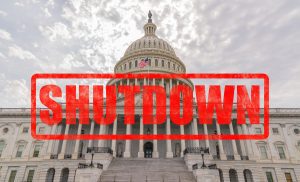For many local governments, Transient Occupancy Taxes (TOT) are a critical source of revenue. Often levied on short-term stays at hotels, motels, and vacation rentals, these taxes can amount to millions of dollars annually. Yet, many governments fail to monitor compliance adequately, potentially leaving significant revenue uncollected. In some cases, local governments have discovered they were missing out on nearly $1 million in revenue simply because they weren’t tracking remitters closely.
Why Monitoring TOT Matters
TOT is typically collected by lodging providers and then remitted to the government. However, without proper oversight, some businesses may underreport or fail to remit the correct amounts. Inconsistent monitoring can lead to:
- Lost Revenue – Uncollected taxes reduce available funds for essential services.
- Unfair Market Conditions – If some businesses comply while others do not, compliant businesses are at a disadvantage.
- Increased Audit Risks – State agencies or watchdog groups may scrutinize municipalities that fail to enforce their own tax policies.
Common Reasons for Under-Collection
- Lack of Regular Reconciliation – If a government doesn’t compare TOT revenue against expected receipts, discrepancies go unnoticed.
- Limited Awareness of New Rentals – The rise of platforms like Airbnb and VRBO has made it harder to track all taxable rentals.
- Failure to Audit TOT Remitters – Many municipalities rely on self-reporting without conducting routine audits or reviews.
- Complex Tax Structures – Some jurisdictions have tiered TOT rates, exemptions, or varying remittance schedules that create confusion for both businesses and government staff.
How to Strengthen TOT Monitoring
- Implement Data Analytics & Reconciliation
Governments should use data analytics tools to compare actual TOT collections with historical trends, hotel occupancy rates, and reported figures from major lodging providers. Cross-referencing this data with business licensing records can help identify missing remitters.
- Conduct Periodic TOT Audits
Routine audits and compliance checks can uncover errors, underpayments, or outright tax evasion. Even a random sample review of large remitters can encourage compliance across the board.
- Strengthen Registration & Reporting Requirements
Ensure that every business collecting TOT is registered and regularly reporting, including short-term rental hosts on platforms like Airbnb and VRBO. Some governments partner with these platforms to facilitate direct tax collection and reporting.
- Improve Communication with Remitters
Many non-compliant businesses aren’t trying to evade taxes—they simply don’t understand the rules. Providing clear guidance, online payment portals, and educational resources can improve voluntary compliance.
- Use Technology to Streamline Collection
Automated systems for tax collection and monitoring can reduce errors and fraud while improving efficiency. Cloud-based tax platforms can flag late payments, discrepancies, and anomalies in reporting.
The Bottom Line
Monitoring Transient Occupancy Taxes isn’t just about compliance—it’s about protecting public revenue and ensuring fairness across businesses. With proper oversight, governments can capture missing revenue and enhance taxpayer trust. If your municipality isn’t monitoring TOT closely, now is the time to start. The cost of inaction could be millions of dollars left on the table.
Need help evaluating your government’s TOT monitoring process? Contact us today to explore audit and compliance strategies that can help you maximize revenue and ensure fair enforcement.




